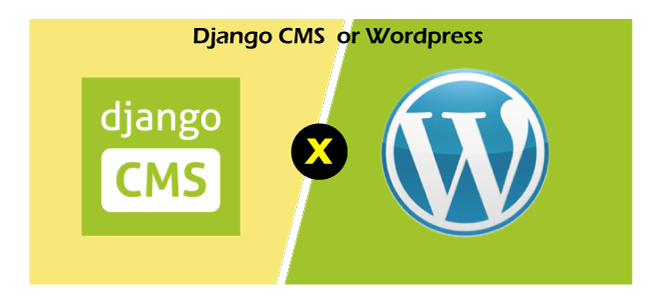Django CMS vs. WordpressIn this article, we will discuss the difference between Django CMS and WordPress. CMS stands for Content Management System that is used to manage websites and organizations. To start the web development, the first step is to choose a suitable platform and tool to develop web applications. There are many tools already available that may make confuse them, which is appropriate for their project. So it is necessary to acquire all the information before step into any web development. 
WordPress is the most popular tool for CMS, and there are millions of websites developed from WordPress. But before choosing a WordPress, the user should be aware of the other CMS tools such as Django CMS. It makes it easier to manage the web development process. To make the process easier, we will make a detailed comparison between WordPress and Django CMS. This tutorial will include the following topic -
What is Django CMS?Django is an open-source, rapid-development web framework. It is written in Python. There is also a WordPress-like CMS called Django CMS. It is a powerful and popular framework. Django CMS is used by the worlds-leading space agency NASA and L'Oreal Men expert companies. It provides the facility to manage the website using built-in tools and customize the content. One of the best features of Django is that developers don't need to create the admin page. Since it is open-source, anyone can use it without paying a single penny Features of Django CMSThere are many features of Django CMS that make it the most appropriate tool for web development. Some of the main features are given below.
Disadvantages of Django CMSDjango CMS is famous for its excellent features, but it also comes with few disadvantages. Below are the disadvantages.
When to use Django CMS?Django CMS enables some unique features that cannot easily find on the internet. If the user is looking for such features or the WordPress theme doesn't offer the Django CMS would be the best choice. Or you are looking for a WordPress replacement, Django CMS is the best choice for you. If you know Django, then you can efficiently work with Django CMS. What kind of websites user can build?With the Django CMS, user can build given websites.
Tools Integrated with Django CMS
What is WordPress?WordPress is the most popular, open-source content management system. It is written in PHP and MySQL. Millions of websites are developed using WordPress. A big organization like Techcrunch, Frankwatching, and Next Web are using WordPress. WordPress allows the user to add plugins, install themes and customize according to our requirements. We can also add some attractive widgets. It provides excellent ease to develop the website. It provides both paid and free features, some are slightly expensive, and others charge a relatively small amount. By paying some amount, users can build impressive interfaces and features. You don't need a pro developer or have deep knowledge of PHP and MySQL if you plan to develop website using WordPress. It also allows to single-click web-hosting facility. This is why many have named it a "tools for amateurs". WordPress has a big community across the world who is actively investing in the system. Features of WordPressBelow are the main reasons why WordPress is most considered CMS for web development.
Disadvantages of WordPressHere we are going to discuss the main disadvantages of WordPress.
When to Use WordPress?WordPress is the most suitable tool for absolute beginners. It provides easy to use interface and drag and drop features. Users should be familiar with HTML, CSS, and other web designing tools and languages. It is easy to customize and no complex features. Tools Integrated with WordPress
What kind of website user can build using WordPress?
Difference between Django CMS and WordPressFollowing are the head-to-head comparison between the Django CMS and WordPress. Both frameworks create the dilemma of too many developers which is the best framework. WordPress is free content management and easy to use, whereas Django requires prior knowledge of Python.
ConclusionIn this tutorial, we have discussed a comparison between the Django CMS and WordPress. Both frameworks have their own advantages and disadvantages. No tool is perfect and neither extremely bad. It's total upto the user which framework is more suitable for their project. If you are looking for a full-flexed professional website that reflects your brand value, Django CMS is the best framework for such type requirement. Django's website provides the elegant touch of professionalism and higher brand value. However, WordPress can also do the same, but Django CMS offers a more effective look. Django CMS is not preferred for blog sites but best for SMBs and larger businesses. On the other hand, if you are looking for a blog website that provides higher informative values within a standard architecture. Then WordPress would be the first choice over Django CMS. WordPress provides SEO improvements; easily customize themes, various plugins, and user interface. This is obvious that you will find specific bugs and drawbacks within the WordPress system.
Next TopicDjango vs. Laravel
|
 For Videos Join Our Youtube Channel: Join Now
For Videos Join Our Youtube Channel: Join Now
Feedback
- Send your Feedback to [email protected]
Help Others, Please Share









